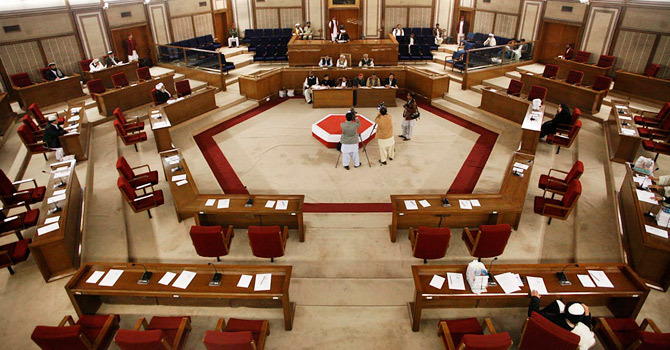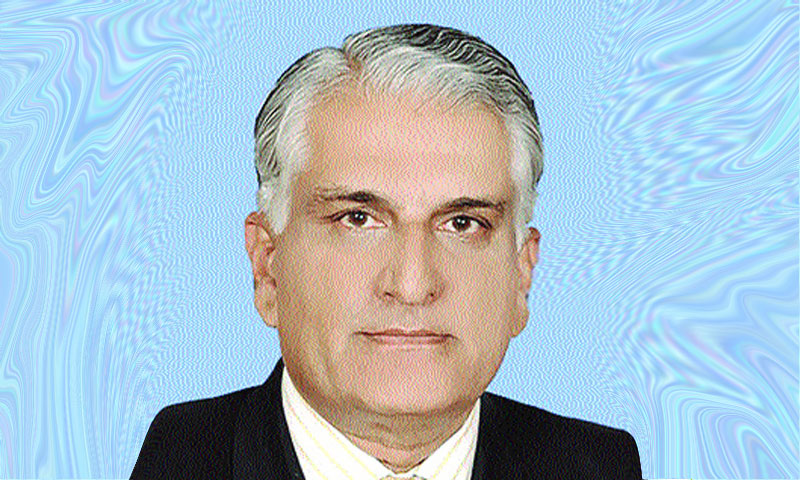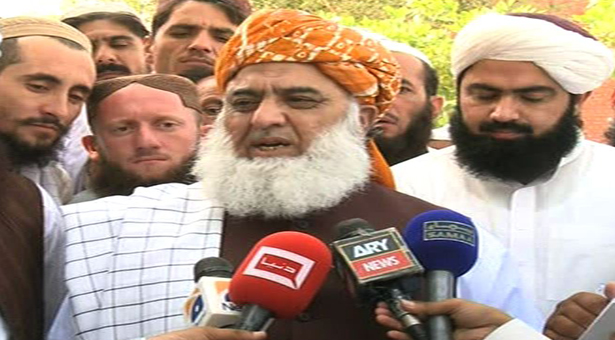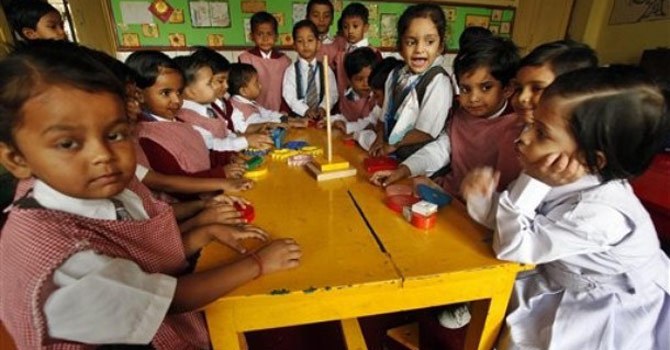- Web
- Humsa
- Videos
- Forum
- Q2A


.jpg)
Project in the interest of region: Zardari; Outsiders must stop creating hurdles: Ahmadinejad
GABD (Iran): President Asif Ali Zardari and his Iranian counterpart Dr Mahmoud Ahmadinejad performed on Monday groundbreaking of the long-awaited $7.5 billion gas pipeline project, laying the foundation of bilateral energy cooperation and defying western opposition.The project will deliver 750 million cubic feet of gas per day to Pakistan by Jan 2015.
“The Iran-Pakistan ‘gaslifeline’ will help eradicate terrorism, bring prosperity to the region and overcome poverty,” President Zardari said after he and Mr Ahmadinejad unveiled the plaque of the project at a ceremony in the Iranian city of Chabahar, near the Pakistan border. They also saw welding of pieces of pipeline painted with flags of the two nations.
Mr Zardari described the event as a historic moment not only for the two countries but also for the region. He said many countries in the world had prospered by doing trade within their regions, adding that economic and energy cooperation could make Pakistan and Iran prosperous.
“Relations could be cold and warm, but geographic neighbours cannot change. Let us live together in prosperity and cooperation.” Adviser to the Prime Minister on Petroleum, Dr Asim Hussain, announced that Gwadar port would soon have Pakistan’s largest refinery, which would be built jointly by the two countries.
President Zardari said the Iran-Pakistan gas pipeline project was not against any country. It is in the national interests of Pakistan, Iran and countries in the region. By promoting regional integration, these countries will be better placed to fight terrorism and extremism.
He said the pipeline project marked a new chapter in the history of Pakistan-Iran relations. It is also a leap forward in regional cooperation and integration.Muslim countries faced big challenges because the “world does not understand us and does not want to understand our problems. They wish well for us but don’t know how to help us; so we have to build and strengthen ourselves. Let us do it for ourselves”, President Zardari observed.
The pipeline project and other bilateral cooperation would help fight terrorism through prosperity and wellbeing of the people. “I urge the international community don’t put in us different definitions. We have our own definition and we know what is good for us,” he said.He said no matter what “our detractors say about this pipeline, but work on it will go on. Our detractors never believed that our democracy will survive, but we have survived and gave five years to democracy”.
President Ahmadinejad said the project had nothing to do with its nuclear programme because the gas pipeline cannot help make bombs. “This is a peace pipeline and if the world wants peace it should refrain from creating hurdles,” he said. “This pipeline will become a milestone in regional cooperation and this event is a message to opponents”.The future of Pakistan and Iran depended on cooperation, Ahmadinejad said, adding that while Pakistan had agriculture, commodities and value-added goods, his country had abundant energy resources which should become the basis of bilateral trade.
Analysts were of the opinion that the groundbreaking was a big step forward, but the success lay in steadfastness. “This is the first big step towards gas pipelines in the region,” former petroleum secretary Dr Gulfaraz Ahmad said. “If we remain steadfast and show resolve to complete it, the US pressure will not matter and in fact subside, but if we waver they will exert more pressure,” he said. “The caveat lies in resisting pressures and implementing the project with full focus,” said Ahmad Waqar, another former petroleum secretary. He said national interest demanded pursuing the project as it would contribute to prosperity of the people of Pakistan.
The project, conceived in the early 1990s, envisages delivery of 750MMCFD of gas from Iran’s South Pars field at the Pakistan-Iran border through a 56-inch 1150-km pipeline.A 900-km pipeline from South Pars to Sheher in Iran has already been laid while the construction of a 200-km pipeline up to Gabd-zero point is in the final stages of design.
The 781-km Pakistani section of the pipeline (42 inch diameter) is to be laid close to Makran coastal highway from Gabd-zero point to Nawabshah, in Sindh. On completion, it will help generate 4000MW of electricity.The price of gas is currently estimated at 78 per cent of the international oil price, but subject to revision a year before first flows on the basis of comparative energy sources, notably Turkmen gas.
The 781km section’s consultants include Germany’s Beratende Ingenieure GmbH and Pakistan’s Nespak. Construction work will be undertaken by Tadbir Energy of Iran at an estimated cost of $1.3 billion. Iran will provide $500 million — half through a government loan and half through an Iranian bank. The remaining cost will be arranged through a Chinese loan and gas infrastructure development cess.
The two countries had signed intergovernmental framework and gas sale and purchase agreements in 2009, which legally became effective on June 13, 2010.Dr Asim Hussain said the project on completion would contribute about five per cent to Pakistan’s gross domestic product and create 10,000 jobs during construction and about 3,000 after completion.
The groundbreaking ceremony was attended by delegations from Kuwait, Turkmenistan, the UAE, Oman, Afghanistan and Qatar, according to an announcement made from the podium.Pakistan’s delegation, led by President Zardari, was flown in three planes to Chabahar airport, about 200km from Gabd-zero point on the Pakistan-Iran border.
Besides ministers, the delegation included former prime minister Yousuf Raza Gilani, the Speaker and the Deputy Speaker of the National Assembly, retired generals and almost all former secretaries of the petroleum ministry.
Twists and Turns:
1994: Pakistan and Iran start discussing gas pipeline project.
1995: Governments of Pakistan and Iran sign preliminary agreement.
1998: Iran proposes extension of pipeline to India.
1999: Governments of Iran and India sign preliminary agreement.
2003: Iran and Pakistan form Working Group.
2005: MoU is signed to include India in the project.
2007: After a long break, Pakistan, Iran and India resume talks on the project and agree on a tariff of $4.93 per million British thermal units. However, many of the technical details and issues related to price revision mechanism remain unresolved.
2008: Iran expresses interest in Chinese involvement in the project.
2009: India withdraws from the project after signing civilian nuclear deal with the US in 2008 citing security and pricing issues.
2009 (April): Pakistan’s cabinet approves Gas Sales Purchase Agreement (GSPA) with Iran.
2009 (May): Presidents Zardari and Ahmedinejad sign Inter-Governmental Framework Declaration. GSPA is also initialled on the occasion.
2010 (January): US asks Pakistan to quit the project and in return offered to assist in construction of LNG terminal and import of electricity from Tajikistan.
2010 (March): Pakistan and Iran sign agreement in Turkey for the construction of the pipeline.2010 (May): Iran and Pakistan sign sovereign guarantees agreement.
2010 (June): Pakistan and Iran sign export contract, binding Iran to supply gas from 2014.
2010 (June): US for the first time warns Pakistan of sanctions because of involvement with the project.
2011 (July): Iran announces that it has completed its section of the pipeline.
2012 (March): Industrial and Commercial Bank of China backs out of agreement to finance the gas pipeline because of US sanctions on Iran. Pakistan starts looking for alternate sources. Russian energy giant Gazprom expresses interest in the project.
2012 (April): Pakistan’s petroleum ministry floats tenders for construction of the gas pipeline.
2012 (October): Iran offers to finance one third of the cost of laying pipeline in Pakistan’s territory.
2013 (January): Pakistan’s federal cabinet ratifies the project.
2013 (February): Iran and Pakistan agree on financing deal and conclude technical negotiations in Tehran. Iran’s Supreme leader Ayatollah Khameini tells President Zardari to disregard US pressure and go ahead with the project.
2013 (March 11): Ground breaking is performed.
 Members of the Balochistan Assembly belonging to JUI-F and BNP-Awami again criticised the federal government on Monday for imposing governor’s rule in the province and termed it an insult to people’s mandate.
During a debate in the Balochistan Assembly, they demanded that all legislations should be in accordance with recommendations of t..... Read more
Members of the Balochistan Assembly belonging to JUI-F and BNP-Awami again criticised the federal government on Monday for imposing governor’s rule in the province and termed it an insult to people’s mandate.
During a debate in the Balochistan Assembly, they demanded that all legislations should be in accordance with recommendations of t..... Read more
 SLAMABAD: Two days before the Supreme Court is to take up petitions seeking prosecution of former military ruler retired General Pervez Musharraf on treason charges, Prime Minister Nawaz Sharif withdrew the law ministry’s portfolio from Zahid Hamid in an apparent move to save his government from any possible embarrassment.
According to a Cabinet D..... Read more
SLAMABAD: Two days before the Supreme Court is to take up petitions seeking prosecution of former military ruler retired General Pervez Musharraf on treason charges, Prime Minister Nawaz Sharif withdrew the law ministry’s portfolio from Zahid Hamid in an apparent move to save his government from any possible embarrassment.
According to a Cabinet D..... Read more
 DERA ISMAIL KHAN: Jamiat Ulema-e-Islam-Fazl (JUI-F) chief Maulana Fazlur Rahman Wednesday said that some powerful coteries wanted to sabotage the talks with Taliban, Geo News reported.
After casting his vote in the Tank-D.I. Khan NA-25 by-poll, talking to media Maulana Fazlur Rahman said that incidents like Upper Dir should not impede the talks. He ..... Read more
DERA ISMAIL KHAN: Jamiat Ulema-e-Islam-Fazl (JUI-F) chief Maulana Fazlur Rahman Wednesday said that some powerful coteries wanted to sabotage the talks with Taliban, Geo News reported.
After casting his vote in the Tank-D.I. Khan NA-25 by-poll, talking to media Maulana Fazlur Rahman said that incidents like Upper Dir should not impede the talks. He ..... Read more












 Clean Chit (Faisal Raza Abidi ...
Clean Chit (Faisal Raza Abidi ...  Akhir Kiyon - 16th December 2...
Akhir Kiyon - 16th December 2...  To The Point - 16th December ...
To The Point - 16th December ...  Capital Talk â
Capital Talk â  Kal Tak - 16th December 2013
Kal Tak - 16th December 2013  Bay Laag - 16th December 2013
Bay Laag - 16th December 2013  Kharra Sach - 16th December 2...
Kharra Sach - 16th December 2...  Awaam - 15th December 2013
Awaam - 15th December 2013 





 Gold Miner
Gold Miner  Superbike GP
Superbike GP  Whipsaw Fighter
Whipsaw Fighter  PacMan
PacMan 


